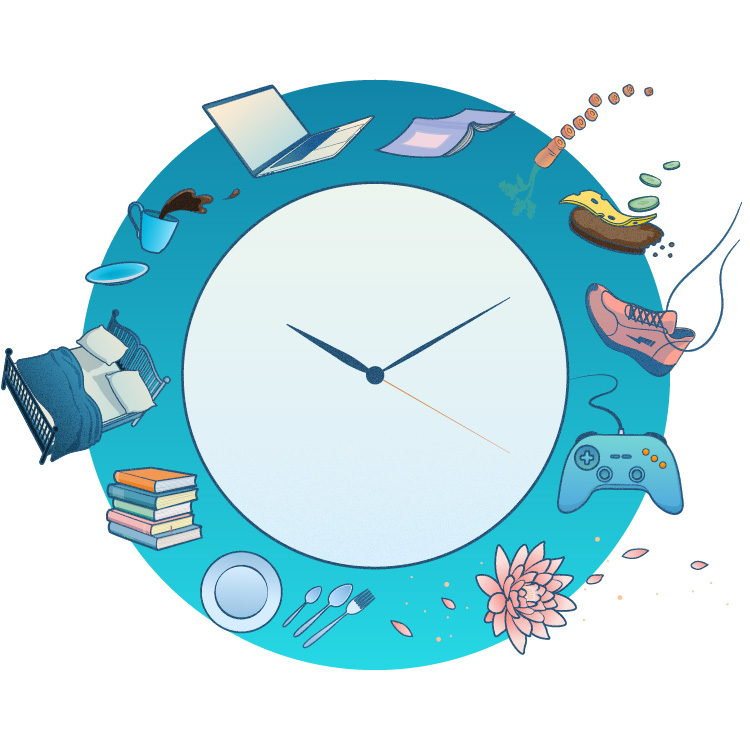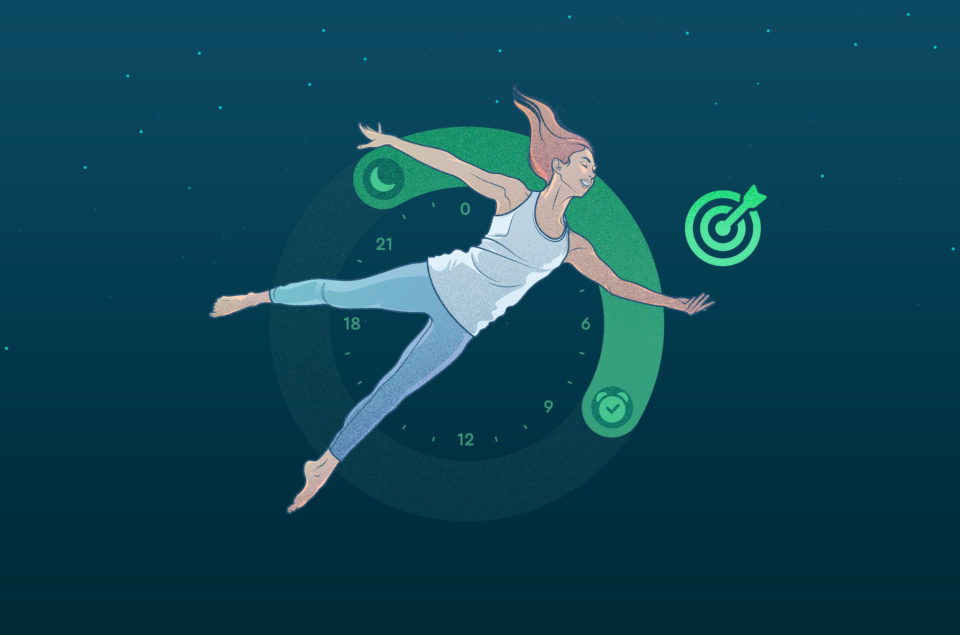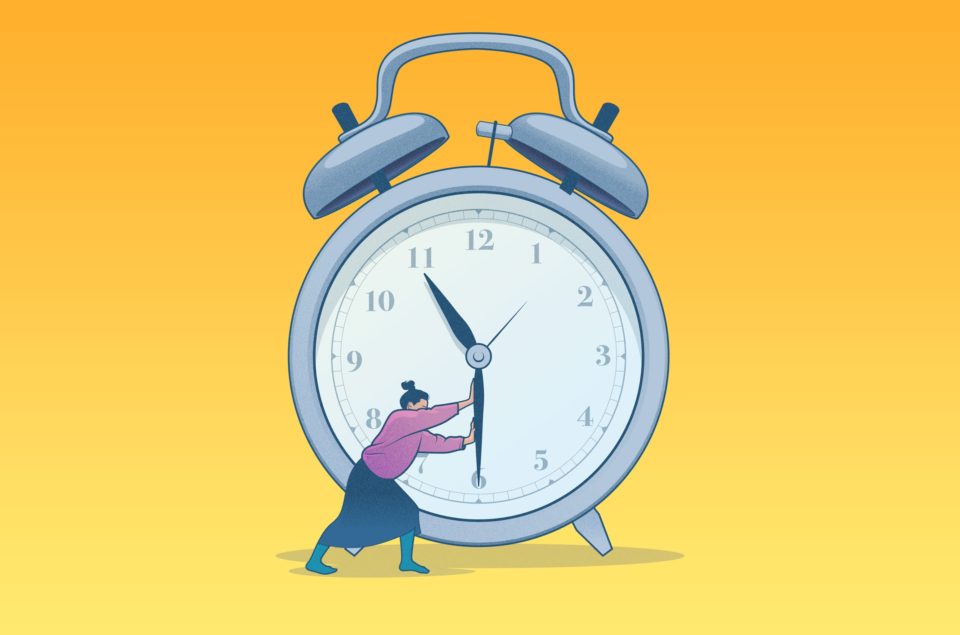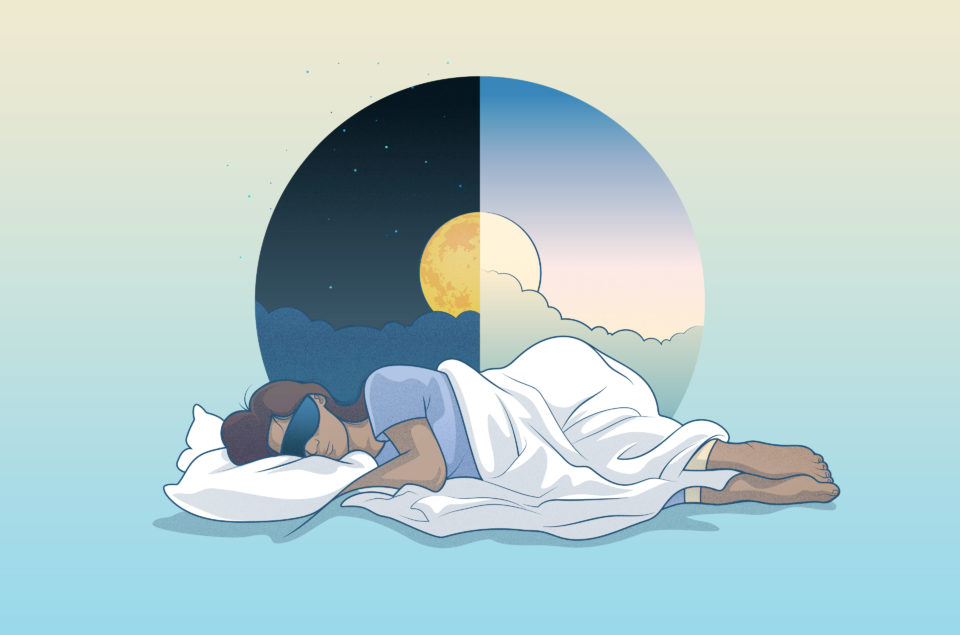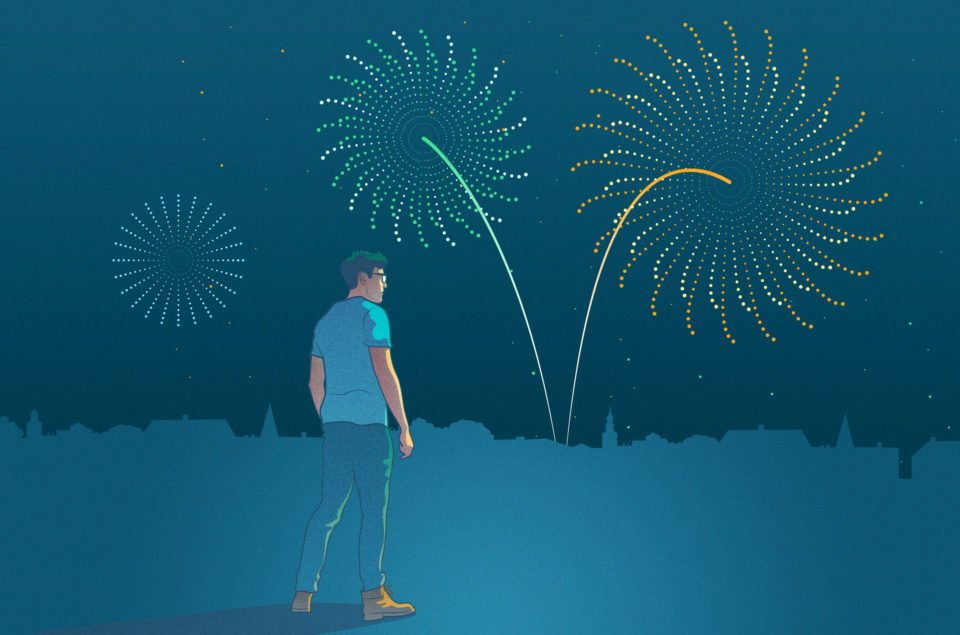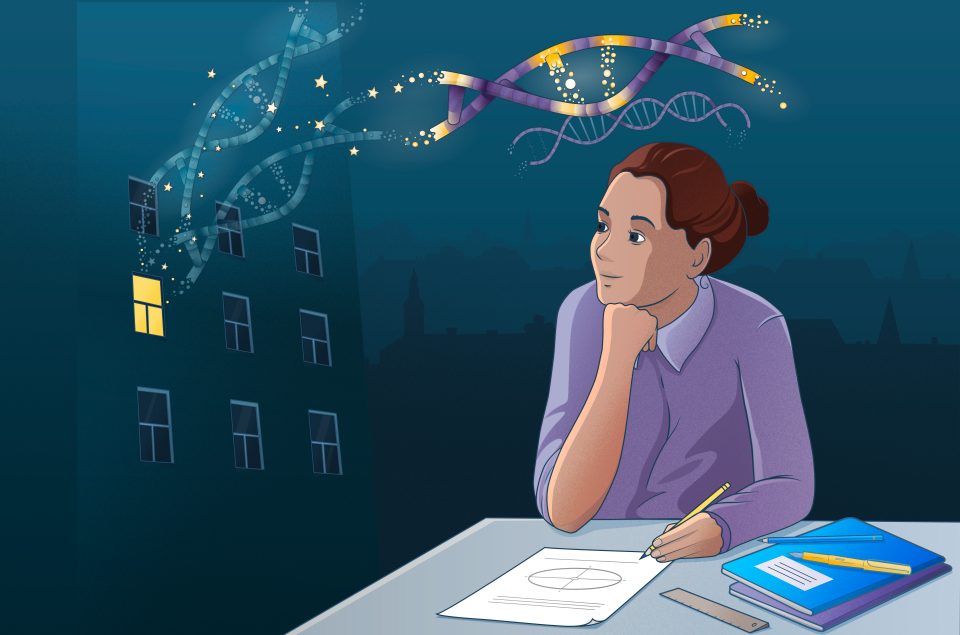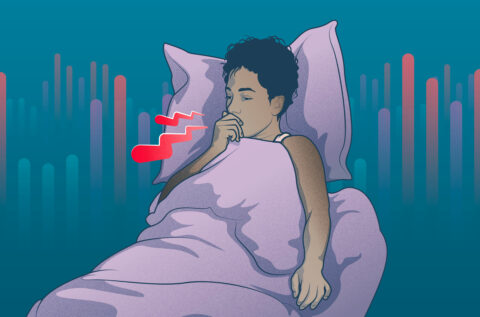Our lives are governed by international travels, 24/7 delivery, window blinds, and Netflix. Ruled by the habit of having everything available on demand anytime, we are trained to believe we are in control. From how much food we need to when we should sleep. Our needs have evolved to something unbiased of time and place.
However, I’m gonna ask you to put that notion aside for a moment. That idea of being the sole master of your own time. Instead, I’m going to ask you to face the fact that Nature rules. In 2017, a new discovery forced us to take a good look at what’s beyond our control, because nature says so. Let’s talk about how the circadian rhythm works (the body clock), the biological and master clock and the winner of the Nobel prize for medicine or physiology in 2017.
The circadian rhythm explained
First discovered in little fruit flies, we now know that the molecular components of the body clock are at full work in all multicellular life. In all living organisms and in all living things. Humans included. This means the body clock is now considered a key aspect of life. Not the smartwatch on your wrist or the old granny clock at your parents’ house. We are referring to our built-in body clock governed by the circadian rhythm. The one you carry with you at all times. The internal clock that connected the rotation of our planet to our cells, over millions of years of evolution.
The internal body clock lets organisms know the rising and setting patterns of the sun. It does not depend on us reacting to it through senses like vision and hearing. It’s like a million timepieces spread out through different cell types. They automatically and seamlessly inform our bodies of what time it is. These little timepieces in our cells control physiology like sleep, body temperature, metabolism, and release of hormones.
How does circadian rhythm affect sleep?
Light exposure during the day sends signals to our body clock to keep us alert, awake and active. As the evening and night approach, our body clock starts the production of melatonin – a hormone that promotes sleep – and sends signals that tell us that it’s time to fall asleep and stay asleep until sunrise. All this is what is known as the sleep-wake cycle, and it’s aligned with the day and night thanks to our circadian rhythm.
This means that we all have a built-in autopilot governed by the circadian rhythm. A 24-hour built-in smarter smartwatch telling us when it’s time to feel sleepy and when it’s time to feel alert. We’ve known it existed for a while. But until this recent discovery, we had little knowledge of how it actually works.
How circadian rhythms work
Circadian Rhythms make sure that the body functions go according to the 24-hour cycle, and affect most living things. In us, they coordinate all our body systems, both mental and physical, and are linked to a master clock, situated in the hypothalamus (a small part of the brain). Throughout the day, our clock genes in the master clock send signals to our body systems to regulate their activity.
Among other factors like exercise or temperature, this master clock is highly influenced by light and that’s why our circadian rhythms follow the day and night cycle.
What are biological clocks, then?
Biological clocks regulate the timing of the different functions of the body, including the circadian rhythm. However, not all biological clocks are circadian as they may follow other timing than the 24-hour cycle (for example, plants follow the seasons of the year instead).
What can disrupt circadian rhythm?
There are diverse factors that can disrupt circadian rhythm in the short or long term. Some of them are related to our behaviour and lifestyle, like travel or work, and some others appear from an underlying issue that causes our inability to process the signals that the master clock needs to regulate our body system. Some causes are:
- Jet lag
- Working in shifts
- Delayed Sleep Phase Disorder
- Advanced Sleep Phase Disorder
- Irregular Sleep-Wake Rhythm Disorder
What happens if your circadian rhythm is out of whack?
When our circadian rhythm is disrupted, our sleep is directly and negatively impacted as the body can’t function properly. A person with a misaligned circadian rhythm can struggle to fall asleep, stay asleep during the night, or suffer from a more fragmented, low-quality sleep. This can lead, in turn, to a higher risk of insomnia and excessive daytime sleepiness, which are not good either for our overall health and wellbeing.
One of the best ways to avoid this is to go outside, and get some daylight to reset your circadian rhythm – as light is the strongest factor we have to synch our body clock with the world around us.
The circadian rhythm research that won a Nobel prize
Scientists already knew internal body clocks existed long before they figured out how they work. Solving the mystery kicked off in 1971 when Seymour Benzer and his student Ronald Konopka discovered faulty body clocks in fruit flies. The pair of them were then able to trace the cause of the faulty body clocks back to a mutation in one particular gene. That gene was later named PER.
In comes Jeffrey Hall and Michael Rosbash, Nobel prize winners who in 1984 started studying the PER gene. Together they figured out how our body clocks work governed by the circadian rhythm. They proved that the PER gene builds up in cells overnight, and breaks down over the day. Meaning the level of this gene is not constant throughout a time period of 24 hours. Its levels rise and fall.
The pair paired up with Michael Young at Rockefeller University, who found a second body clock gene called TIM. The three of them were able to piece together a number of additional genes in the body clock’s chemical process. They discovered and identified the cells that ultimately help set the time in our body clocks. The time governed by the circadian rhythm, in turn, regulated by the light our body receives over 24 hours.
The importance of circadian rhythms
Knowing how the circadian rhythm works, we can benefit from it in multiple aspects:
- This research will help scientists improve public health. For example, some drugs have a better effect when taken at the right time, in line with hormone levels and digestion cycles. We can now calculate when hormone levels and digestion cycles hit the sweet spot. We can distribute drugs when the best effect is achieved. Which in turn helps save money and time, but first and foremost will help save lives.
- When it comes to sleep, this discovery lets us figure out why some people have a different chronotype: why some are early birds and some are night owls. If you’re always tired in the morning, even if you get enough sleep, there’s a simple explanation at hand. You’re most likely naturally tuned that way by your body clock and circadian rhythm.
- Knowledge like this can help you learn how to plan your sleep schedule accordingly, making sure you wake up in the right sleep phase to maximize your energy levels. In addition, fighting jet-lag will now make total sense, since the wrong time a day to feel sleepy most likely is the right time of day.
- To the benefit of the sleep industry, an increased attention to the nature of the circadian rhythm is believed to make a big impact in the future of sleep diagnostics and sleep aid. These new discoveries will provide valuable tools for sleep research, helping apps like Sleep Cycle provide better sleep services to consumers across the globe.
What now? How can we keep a healthy circadian rhythm?
Making sure you listen to what your body needs, grows even more important with the discovery of the effect of the circadian rhythms on body and mind. The myth of how all needs can be controlled as if engineered by your outlook calendar is history. Scrap that! Enter the day of getting to know your own body’s built-in calendar. Be generous and give your smarter smartwatch a bit more say in how you plan your days, from now on.
